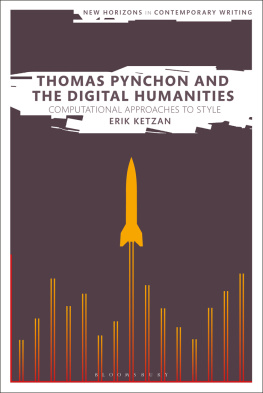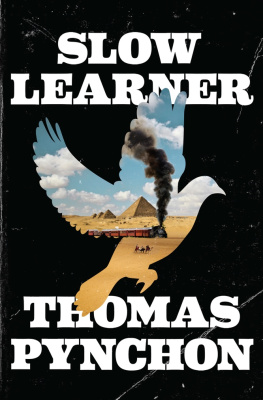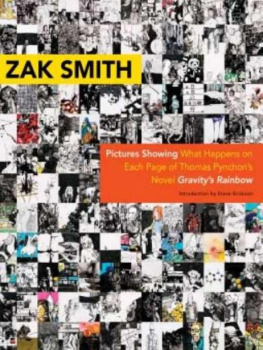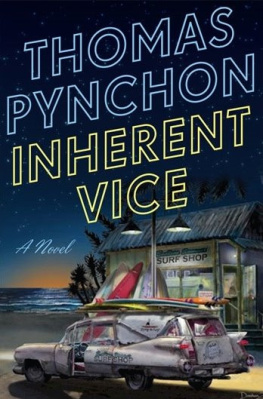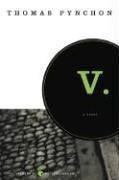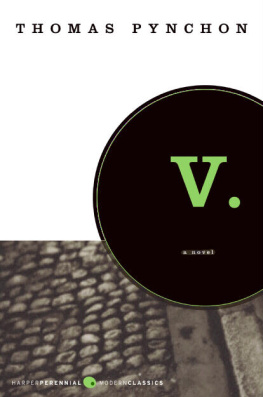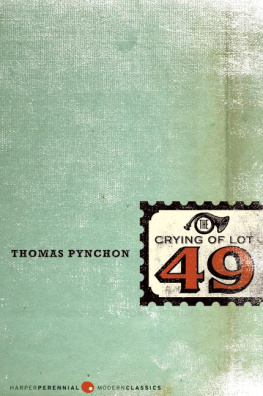Thomas Pynchon, Sex, and Gender
Thomas Pynchon, Sex, and Gender
EDITED BY ALI CHETWYND, JOANNA FREER, AND GEORGIOS MARAGOS

2018 by the University of Georgia Press
Athens, Georgia 30602
www.ugapress.org
All rights reserved
Set in 10/13 Kepler Std by
Graphic Composition, Inc.
Bogart, Georgia
Most University of Georgia Press titles are available from popular e-book vendors.
Printed digitally
Library of Congress Cataloging-in-Publication Data
Names: Chetwynd, Ali, 1983 editor. | Freer, Joanna, editor. | Maragos, Georgios, 1981 editor.
Title: Thomas Pynchon, sex, and gender / edited by Ali Chetwynd, Joanna Freer, and Georgios Maragos.
Description: Athens : The University of Georgia Press, [2018] | Includes bibliographical references and index.
Identifiers: LCCN 2018008680I ISBN 9780820354002 (hardback : alk. paper) | ISBN 9780820354019 (pbk. : alk. paper) | ISBN 9780820353999 (ebook)
Subjects: LCSH: Pynchon, ThomasCriticism and interpretation. | Sex in literature. | Gender identity in literature. | Violence in literature.
Classification: LCC PS3566.Y55 Z946 2018 | DDC 813/.54dc23
LC record available at https://lccn.loc.gov/2018008680
Contents
MOLLY HITE
JENNIFER BACKMAN
KOSTAS KALTSAS
CHRISTOPHER KOCELA
DOUG HAYNES
MARIE FRANCO
RICHARD MOSS
SIMON COOK
SIMON DE BOURCIER
ANGUS MCFADZEAN
LUC HERMAN AND JOHN M. KRAFFT
JEFFREY SEVERS
CATHERINE FLAY
INGER H. DALSGAARD
Abbreviations
Pynchons novels are cited parenthetically in the text using the following abbreviations. See the works cited of each contribution for the editions referenced in them.
V. | V. (1963) |
CoL49 | The Crying of Lot 49 (1966) |
GR | Gravitys Rainbow (1973) |
SL | Slow Learner (1984) |
VL | Vineland (1990) |
M&D | Mason & Dixon (1997) |
AtD | Against the Day (2006) |
IV | Inherent Vice (2009) |
BE | Bleeding Edge (2013) |
Introduction
ALI CHETWYND, JOANNA FREER, GEORGIOS MARAGOS
Much media and audience debate about Paul Thomas Andersons film adaptation of Inherent Vice (2009) focused on the sex scene between Shasta Fey Hepworth (played by Katherine Waterston) and her ex-boyfriend Doc Sportello (played by Joaquin Phoenix). The scene sees Shasta provoke the initially reluctant Doc into having sex with her by writhing naked in his lap while detailing her masochistic enjoyment of being dominated and abused by her most recent boyfriend, the real estate mogul Mickey Wolfmann, and his associates. Despite the tenderness Doc shows toward Shasta elsewhere in the film, the ensuing sex is brief, devoid of affection, and aggressive. Immediately afterward Shasta asks Doc, Does this mean were back together? and sheds a tear after he replies, Of course not. To many viewers, what made the scene comment worthy was its multidimensional violence, the emotional painfulness of the relationship supplementing the more overt acts of physical cruelty. Journalists described it as brutal, difficult, emotional and characterized by a physical aggression that makes it feel constantly just on the verge of spinning out of control (McWeeny par. 9), as potentially disturbing (Merry par. 4), as gratuitous (Nashawaty, qtd. in Merry par. 3), and, most forthrightly, as an ugly male fantasy (Callahan par. 7). Online discussion forums debated justifications for the anger Doc shows in response to Shastas taunting. Interviews with Waterston, by contrast, tended to focus on her experience of appearing nude, the questions implying that she might (or perhaps should) have felt ashamed or afraid to go unclothed on the big screen (see Gorber, Merry, and Zhong). These strands of public interest converged in engaging with the scenes foregrounding of a problematic relationship between sex, gender, and power that plays out not only within the narrative but also extradiegetically, between filmmakers, actors, and audience.
The experience of watching Andersons film adaptation is, needless to say, not the same as that of reading Pynchons novel, even if the fact that Andersons scene was excerpted for hosting on pornographic websites seems a The sadistic top role is generally playedwith varying degrees of self-consciousnessby a man or group of men: sometimes a villain but just as often a sympathetic character. Such scenes are often formally pornographic, detailing the displayed and subjected female body from a male perspective (as can be seen in the way the Inherent Vice scene has been repurposed as internet pornography).
There are notably few sex scenes in Pynchons writing that operate differently. This pattern has prompted critical objections to its apparent misogyny: criticisms that public responses to the Inherent Vice film echoed. However, this scene can be read from other angles. Shasta, for instance, appears quite deliberately to produce her own body as a fetish object, performing a form of female sexual allure that allows her to overcome Docs sexual apathy, albeit temporarily. Docs own implied perspective might figure him less as sadistically controlling and more as pathetically enslaved to his sexual impulses or as compelled to live up to a clich of male sexual impulsivity. This complicates and balances the couples gendered power dynamic; each body is both empowered and abject, making the indulgence and interrogation of conventional roles simultaneous. Far from simply supplying data for debates about whether to read Pynchon as misogynistic, then, the scene raises questions that engage with the broader ethics and politics of his work. The present collection investigates such questions, making a cumulative case for the previously unarticulated centrality of sex and gender to Pynchons worldview.

Although discussion of sex and gender may never have been central to Pynchon criticism, nor has it ever really gone away. Our bibliography of work on the topic lists seventy-one items: a drop in the Pyndustrys ocean, but Pynchons work has still been the subject of more gender-focused criticism than that of his putative peersBarth, Gaddis, DeLillo, Wallacecombined. Pynchons gender thinking is idiosyncratic enough to not simply be equated with either that canon of fellow male postmodern novelists or that of the popular figuresRoth, Bellow, Updike, Mailerthat his name recognition might set him beside. Pynchon has never written a novel as narrowly trained on the relationships between individual men and women as those of these big cheeses (Roths When She Was Good [1967], Mailers An American Dream [1965], and Updikes Couples [1968] and The Witches of Eastwick [1984], for example), but sex and gender have never been extricable from his vision of real-world politics and power either. Amid the current trend toward critical examinations of a political Pynchon, it would be a mistake either to examine gender in isolation from his broader commitments, or to investigate his politics or worldview without attention to his clearlysometimes worryinglygendered sense of values and capacities.
Next page


